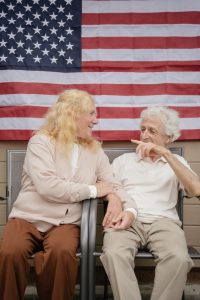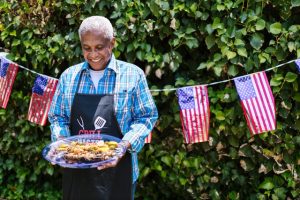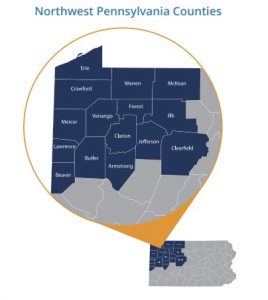Veterans, PTSD, and Fourth of July Celebrations
 As our Independence Day celebrations are quickly approaching, we’d like to pause and reflect on the contributions of all who have served our nation with honor and distinction and to share some suggestions recently published on the American Association of Retired Persons (AARP) regarding Veterans, PTSD, and Fourth of July holiday celebrations.
As our Independence Day celebrations are quickly approaching, we’d like to pause and reflect on the contributions of all who have served our nation with honor and distinction and to share some suggestions recently published on the American Association of Retired Persons (AARP) regarding Veterans, PTSD, and Fourth of July holiday celebrations.
Most Americans look forward to getting together to enjoy the sights and sounds of fireworks on July 4. But for veterans struggling with post-traumatic stress disorder (PTSD), the traditional holiday festivities can be far from welcome.
For those with PTSD, sensory memories like sounds, smells or even feelings in their gut may invoke reminders of trauma and cause symptoms to arise in a particular moment. As such, some service members attempting to celebrate the country’s independence may feel extreme panic while fireworks go off because they may feel they are reliving a traumatic event. With respect to Independence Day, the anticipation of big crowds and loud celebrations can fill a Veteran with dread before the holiday even arrives.
In response, people grappling with PTSD may further isolate themselves to avoid being placed in an environment that’s out of their control and causing trepidation. PTSD isn’t the same for all Veterans. That’s why it’s important to understand what their individual triggers are and how to deal with them in advance of any event that has the potential to induce panic.
How families, friends, and the community can help
 It’s important to understand that a Veteran’s unique experience may be quite different from your own, especially when there’s unpredictability. When it comes to Independence Day fireworks, consider skipping them altogether, or set off fireworks at a predictable time, such as just after sunset on the Fourth of July. Silent fireworks that produce little to no noise can also be sought out for smaller gatherings. They’ve also been found to benefit children with autism, survivors of gun violence, pets and even wildlife.
It’s important to understand that a Veteran’s unique experience may be quite different from your own, especially when there’s unpredictability. When it comes to Independence Day fireworks, consider skipping them altogether, or set off fireworks at a predictable time, such as just after sunset on the Fourth of July. Silent fireworks that produce little to no noise can also be sought out for smaller gatherings. They’ve also been found to benefit children with autism, survivors of gun violence, pets and even wildlife.
Tips for staying centered
 For many, fireworks are an inescapable reality of the Fourth of July. Whether it’s the crowds, the noise or the uncertainty of the day, psychiatrist Amit Etkin offers these recommendations that may help:
For many, fireworks are an inescapable reality of the Fourth of July. Whether it’s the crowds, the noise or the uncertainty of the day, psychiatrist Amit Etkin offers these recommendations that may help:
1. Tell friends and family. If large groups are challenging, tell the host and mention that you may need to leave early if it gets crowded.
2. Employ breathing techniques. For five to 10 minutes, focus on your breath, feeling your body and the pace of your breathing. Separate breathing in and out while removing all the other stimuli around you. Ignore your own thoughts and stay with your breathing.
3. Learn to recognize the signs it’s time to take a break from a situation before you reach the tipping point.
4. Limit alcohol consumption to avoid a loss of control.
Help Us Reduce Veteran Suicide Deaths. Get Involved.
 PERU has partnered with the U.S. Department of Veterans Affairs since 2015 and continues to strive to ensure the health, safety, and well-being of the veteran community.
PERU has partnered with the U.S. Department of Veterans Affairs since 2015 and continues to strive to ensure the health, safety, and well-being of the veteran community.
The Northwest Pennsylvania (NW PA) Veteran Suicide Prevention Program operates on a three-pronged approach involving healthcare providers, community organizations, and Veterans and their families in the 15 counties of NW PA. To learn more about the work we are undertaking alongside our stakeholders, visit the website at theresilientveteran.org. By working together we can reduce suicide deaths of those who have served in the armed forces.
Need Help? Know Someone Who Does? Contact the National Suicide Prevention Lifeline at 988 or use the online Lifeline Crisis Chat. Both are free and confidential. You’ll be connected to a skilled, trained counselor in your area.

